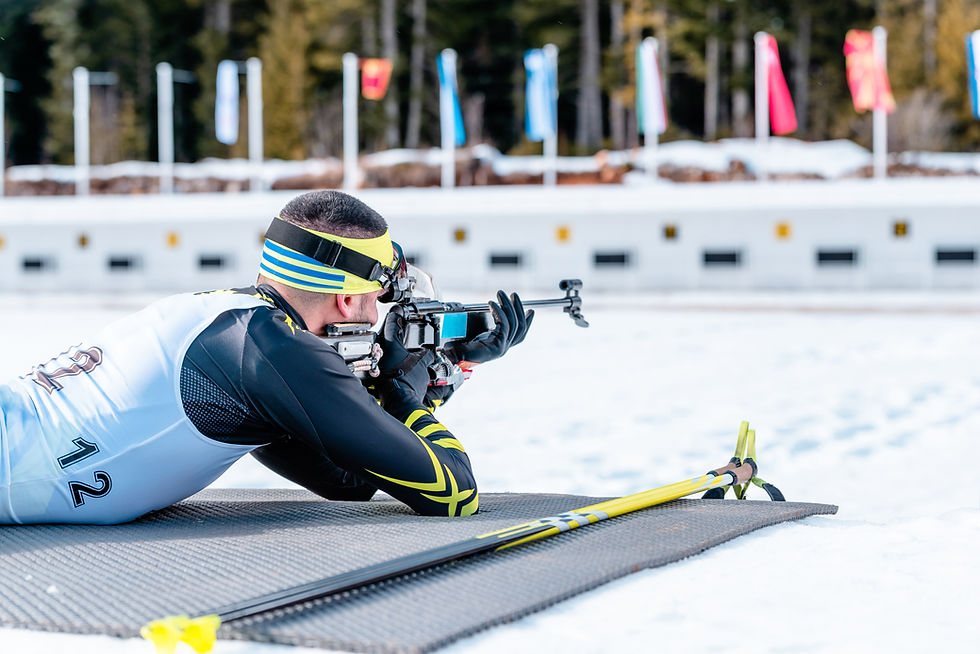7 Ways Sports Psychology Helps Athletes Perform at Their Best
- Darius

- Jul 23, 2025
- 4 min read
Let’s face it—losing sucks. That’s why I’ve spent over a decade studying and training to become a performance psychologist: to help athletes develop the mindset needed to perform at their best when it matters most.

Over the years, I’ve helped athletes across many sports build a Peak Performance Mindset. In this post, I’ll share seven powerful ways sports psychology can transform an athlete’s performance and overall well-being. But firstly, lets define some terms.
What Is Sports Psychology?
Sports psychology is the study of how mental and emotional factors affect performance in sport, exercise, and physical activity. Through it, athletes can optimise two key areas:
Performance: How well they play.
Well-being: How good they feel.
Now let’s dive into the seven key areas where sports psychology makes a massive difference.
1. Emotional Control
Emotions heavily influence athletic performance. Whether it's frustration, nerves, or anger—your ability to manage these feelings directly impacts how you play.
Take golf, for example. A tiny mistake, e.g., a pushed drive can land you in the bushes and leading you dropping shots. If you aren't prepared for this, your game may slip away from you.
I've worked with golfers who would lose their cool, rush shots, tense up, or even snap their clubs. By introducing simple mental techniques and helping them reshape their thoughts, they learned to channel calmness, control frustration, and improve consistency.
Bonus: One golfer also stopped spending so much on replacement wedges!
2. Confidence
Confidence is your belief in your ability to perform—whether that’s sinking a putt, scoring a penalty, or hitting a target.
Confident athletes:
Make better decisions
Handle pressure more effectively
Are more willing to take smart risks
I once worked with a downhill mountain biker who wanted to improve his confidence and confront fear. Considering the insane terrain these riders face, that’s no small task. Together, we reshaped his thought patterns and prepared him for different race scenarios.
The result? He pushed his limits with confidence—and raced faster.
3. Concentration
Concentration is the ability to focus on the right things for the right amount of time—while tuning out distractions.
Great athletes know how to manage attention across four channels:
Broad
Narrow
Internal
External
I worked with a goalkeeper who struggled with focus during games. He’d drift mentally and miss key moments, leading to unnecessary goals conceded. Sounds simple to fix, but staying laser-focused for 90 minutes is mentally exhausting.
Through tailored strategies, he learned how to maintain his focus, cut out distractions, and stay engaged throughout the match—leading to fewer mistakes and more saves.
4. Communication
Behind every major success story, there’s a team. Top athletes communicate effectively with:
Coaches for improvement
Teammates for strategy
Loved ones for emotional support
In nearly every session I run, communication comes up—because we use it to solve problems.
Here are 3 quick tips for effective communication:
Keep it simple. Use the KISS method: Keep It Simple, Stupid. Clear, concise instructions work best.
Use body language. Gestures can help teammates understand you—even across the pitch.
Mind your tone. The wrong tone can escalate tension. Deliver tough feedback kindly and constructively.
Great communicators help teams run smoother—and win more.
5. Motivation
Motivation is your inner drive—the reason you wake up and chase your goals day after day.
Motivated athletes:
Stay disciplined
Push their limits
Stay resilient during setbacks
One CrossFit athlete I worked with admitted to skipping sessions and losing drive. Together, we explored goal-setting, resilience training, and environmental adjustments.
By understanding how he operated, we helped him rediscover his why, rebuild discipline, and get back on track with training.
6. Enjoyment
Most of us fell in love with sport as kids because it was fun. But as pressure builds, that joy can fade—and sport can start to feel like a chore.
Elite athletes know that keeping training fun keeps them consistent.
Here are three ways to bring joy back into your sport:
Gamify training. Add challenges, track scores, or race the clock. Steph Curry is a huge fan of this.
Make it social. Train with teammates or friends. Olympic champion Eliud Kipchoge trains with others constantly.
Mix it up. Try new routines or change locations. A simple shift can refresh your mindset.
A little variety goes a long way in keeping the spark alive.
7. Mental Well-Being
As Shakespeare once said, “There is nothing either good or bad, but thinking makes it so.” That applies to athletes too.
When your mind is in a good place, you're:
Better at handling stress
Quicker to recover
Less likely to experience anxiety or burnout
Athletes who prioritise their mental health perform better and enjoy their journey more. And let’s be honest—life is messy. We all need support sometimes. Whether it’s talking to someone you trust or reaching out to a professional, seeking support is a strength—not a weakness.
Final Thoughts
Sport psychology isn’t just about performing better—it’s also about feeling better. From mastering emotions, to boosting confidence, and enjoying training again—the mental side of sport is where many athletes truly level up.
If you want to start developing your own Peak Performance Mindset, check out the free Elite Mentality Course on my website.
"It's the one thing you can control, you are responsible for how people remember you—or don't. So don't take it lightly."
Kobe Bryant




Comments